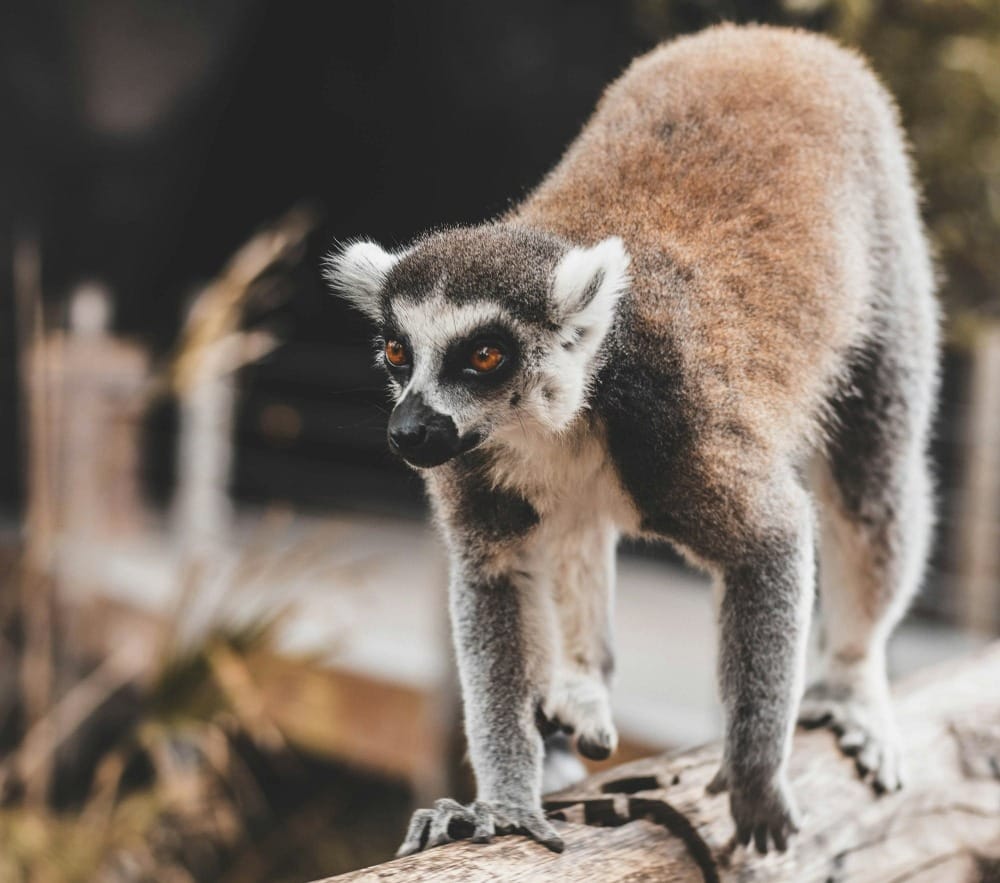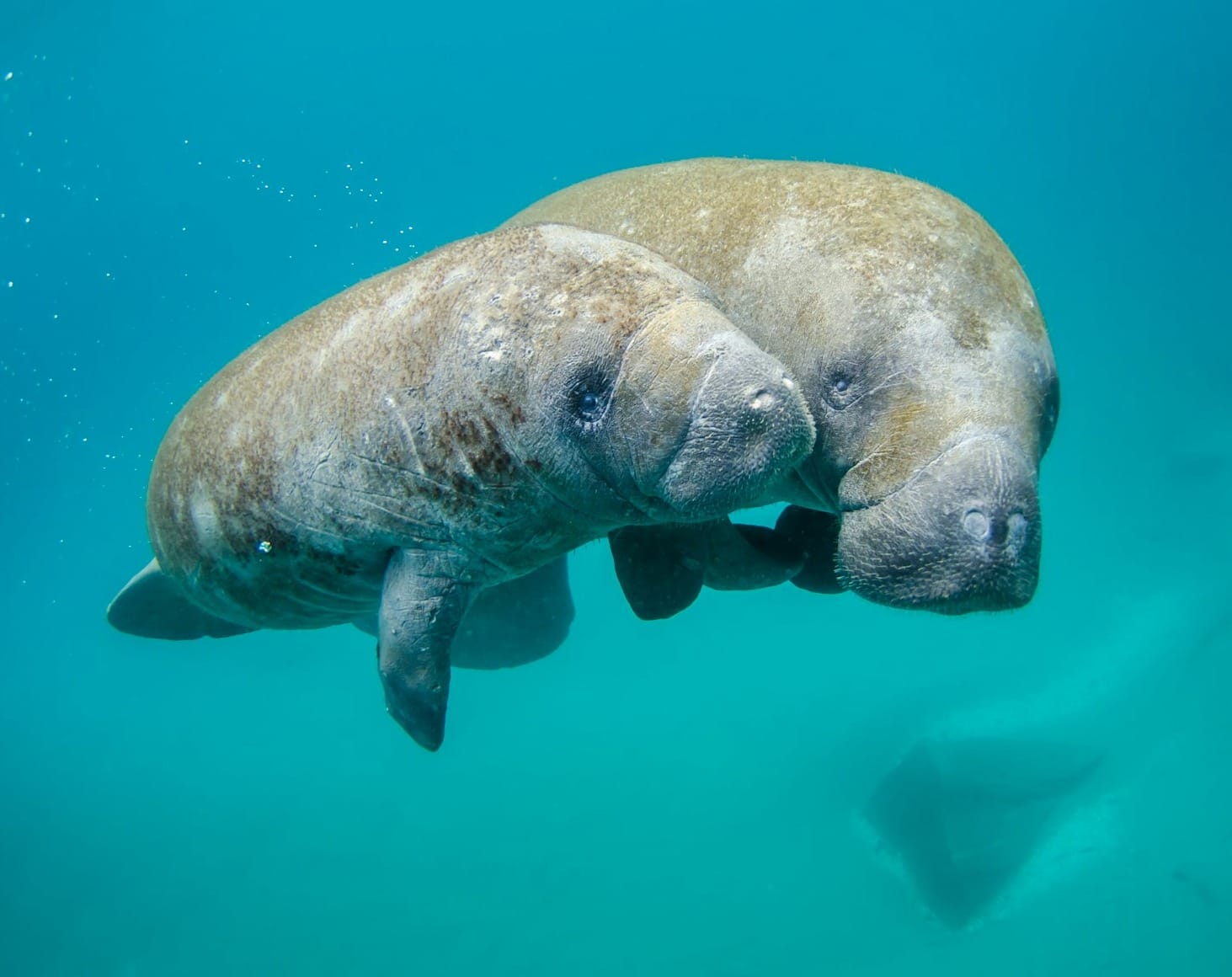Here’s a little secret. Everyone who takes our flagship Learning for Action course knows this, but in the past, we haven’t exactly bragged about it widely: We name each of our cohorts after a species that’s endangered or at risk from global heating.
For instance, the person writing this post also went through the program in the fall of 2021 and was part of the Rhinos cohort. Talk to any alum of the course—its full name is Climate Change: Learning for Action, but for short we call it LFA—and they’ll tell you what animal their cohort was. Greg Findley, now the course director, was with the Pandas, for example. Sarah Burgess, who helps with course operations, graduated with the Elephants.
We mention this now because the next cohort we’re enrolling for, which starts later this month, is called the Manatees. That represents a kind of anniversary for us: Our very first cohort four years ago was the Monarchs, and we’ve been proceeding alphabetically ever since. The Manatees cohort marks our first full trip through all 26 letters, so we’re looking back at some of our past cohorts—and some folks who made this journey special.
How’d this get started?
The Monarchs cohort launched in 2020 in the early days of the pandemic. The name came out of a conversation between Terra.do co-founder and chief learning officer Dr. Kamal Kapadia and Dr. Laney Siegner, an expert at the intersection of food, farming, and climate change. (Among her many other roles, Laney helped run the LFA fellowship early on.) The naming convention ties the program back to caring for the natural world, which is many people's entry point for climate action.
So why Monarchs, to start? “My guess is I had recently seen one in Hawaii and it was on my mind,” Kamal said recently. At the time, she was living in the Aloha State, and though mainland populations of the butterfly were struggling, around Kamal, encouragingly, they were thriving.
(Shout-outs: The Monarchs weren't our biggest cohort, but they did happen to include our product manager Nilesh Bansod, and Dr. Liam Hardy, an ex-astrophysicist who went on to become a Terra.do instructor and course director, and is now a senior policy analyst for the UK think tank Green Alliance.)
26 cohorts later…
The naming tradition has stuck around ever since. Continuing alphabetically hasn’t always been simple, particularly with those rarefied letters that test even skilled Scrabble players. When it came time for a “Q” cohort, we went with Quokkas—a hilariously cute species of marsupial from Southwestern Australia. (Terra.do course ops pro Shamolie Warekar was in this cohort.)
Indeed, the new cohort names have themselves become a learning opportunity, like when we all learned how to pronounce Xerus, the name of a kind of African ground squirrel: “zuhr-us.” (We’re no strangers to names with less than universally intuitive pronunciations, after all.)

These days, before each cohort launches, course manager Alexis Kahn shares fun facts about the animal at hand, like how lemurs “are the world's oldest living primates—70 million years ago they roamed Africa with the dinosaurs.” (Alexis was herself a member of the Urials cohort, named for a kind of wild Asian sheep with excellent horns.) In order, here’s the full rundown of LFA cohorts to date:
Monarchs | Narwhals | Orcas | Pandas | Quokkas | Rhinos | Salamanders | Tigers | Urials | Vaquitas | Whalesharks | Xerus | Yaks | Zebras | Axolotls | Bison | Condors | Dingoes | Elephants | Fossas | Gorillas | Hippos | Ibexes | Jaguars | Koalas | Lemurs | Manatees
What cohort were you in?
Among Terra.do alums, a cohort name is a kind of calling card, almost a handshake. In researching how the Learning for Action program sets fellows up to work on climate, we found that dozens of organizations have hired more than one Terra.do alum—and several have hired four or more. In other words, knowing what a vaquita or a fossa is in a job interview might’ve just gotten someone hired! (Vaquitas are bafflingly cute members of the porpoise family; fossas look somewhat cat-like and are from Madagascar.)
There’s also the community aspect, as alums regularly tell us they keep in touch with others from their cohort: That “support network” is “one of the gems of the course,” says Yaks cohort member Adam Nashban, a veteran political consultant and dad who decided to put his climate anxiety to work. Similarly, alum Lauren Louie told us the network she gained in the Elephants cohort was invaluable to landing a role applying her finance skills to climate action.


